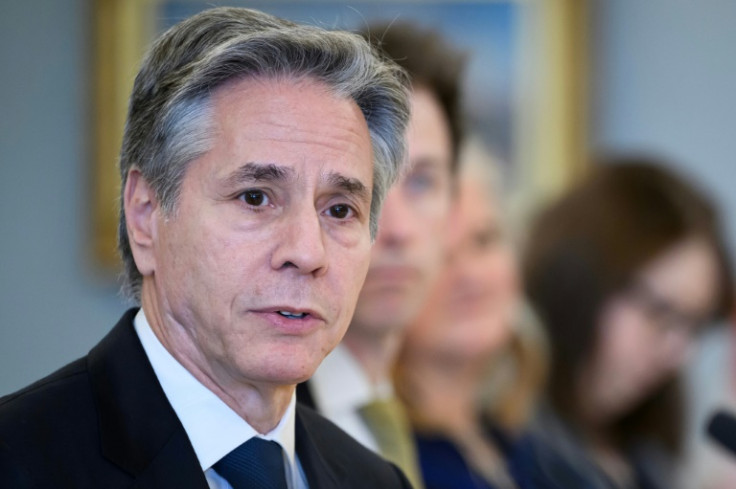
US Secretary of State Antony Blinken insisted during a visit to Tokyo on Tuesday that ties with Japan were stronger than ever, days after President Joe Biden blocked Nippon Steel's takeover of US Steel.
Business groups say the move could have a chilling effect on Japan's standing as the biggest foreign investor in the United States, just as Washington seeks closer relations to counter China.
Two weeks before president-elect Donald Trump takes office, and with Marco Rubio slated to replace Blinken, the top US diplomat recalled that he came to Japan on his first trip in 2021.
The visits at the beginning and end of his tenure show "the centrality of the US-Japan alliance" for Washington, Blinken told reporters after meeting Prime Minister Shigeru Ishiba.
"As we look at the last four years, we've seen an alliance, a partnership, a friendship, that's grown stronger than it's ever been," Blinken said.
He pointed to expanding security ties -- including three-way partnerships with South Korea and the Philippines and a four-way grouping with Australia and India.
"Our economies are extraordinarily intertwined. We are the largest investors in each other's economies," Blinken said. Japanese firms invested almost $800 billion in the United States in 2023.
Blinken made no mention of Biden's decision last week to block Nippon Steel's $14.9-billion takeover of long-struggling US Steel, citing national security concerns.
The two companies filed a lawsuit on Monday against the Biden administration's "illegal interference" in the transaction.
"We're certain the lawsuit will reveal a set of facts that clearly violate the constitution and the law, so I believe we have a chance of winning," Nippon Steel chair Eiji Hashimoto said on Tuesday.
Trump, who takes office on January 20, "wants to make manufacturing strong again", Hashimoto added.
"This is exactly in line with what we're doing," he said.
Nippon Steel had touted the takeover as a lifeline for a US company long past its heyday but opponents warned that the Japanese owners would slash jobs.
US Steel and Nippon Steel argued in their suit that Biden had blocked the deal for political reasons by ignoring the rule of law to gain favour with workers' unions.
Protectionism is expected only to intensify under Trump, who in his first term exited a nascent Pacific-wide trade pact and has vowed to use tariffs to protect US industry.
The president-elect made clear on Monday he would not reverse the Nippon Steel decision.
"Why would they want to sell U.S. Steel now when tariffs will make it a much more profitable and valuable company?" he wrote on his Truth Social platform.
"Wouldn't it be nice to have U.S. Steel, once the greatest company in the world, lead the charge toward greatness again?"
Foreign Minister Takeshi Iwaya raised the Nippon Steel case with Blinken and stressed the importance of Japanese investment in the United States, Tokyo's foreign ministry said.
Ishiba said Monday that the United States should "explain clearly" the security worries cited by Biden.
"There are concerns being raised within Japan's industrial world over future Japan-US investment," Ishiba warned in unusually outspoken comments.
Yasuhide Yajima, chief economist at NLI Research Institute, told AFP that Biden's decision would "certainly create a hurdle for Japanese firms, especially manufacturers, to do business over there".
Blinken, however, focused on areas of cooperation.
After a sushi breakfast at a famous fish market, he held a working lunch with Iwaya and discussed North Korea's latest missile test, carried out Monday as Blinken visited Seoul.
Blinken also spoke with Japanese leaders about Russia's invasion of Ukraine, and tensions over Taiwan and China's "dangerous and destabilising behaviour" in the South China Sea, State Department spokesman Matthew Miller said.
In a key goal for his trip, Blinken voiced confidence that South Korea and Japan would preserve cooperation, including intelligence-sharing on North Korea.
South Korea's conservative President Yoon Suk Yeol has pushed to turn the page on historical tension with Japan, but he was impeached after stunning the nation with a failed attempt to impose martial law last month.



